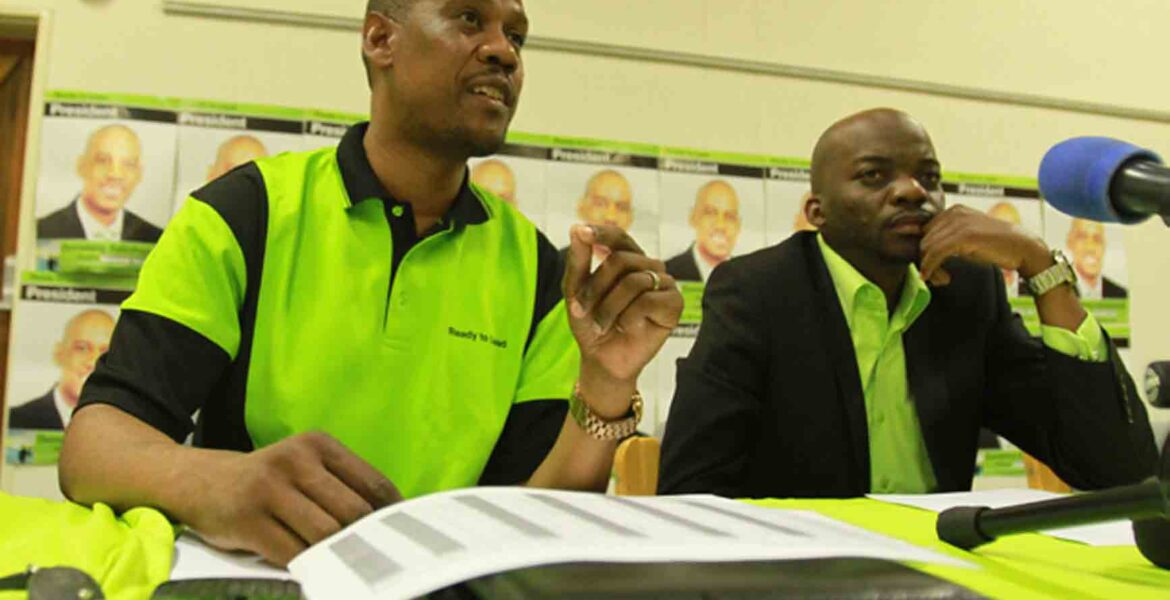There are fears that the party that will win the 2014 general elections will do so with so tiny a margin that it may be necessary to form a coalition or reach an understanding with at least one other party with the objective of installing an effective government that will be able to push legislation through.
Political pundits have opined that the ruling Botswana Democratic Party (BDP) may not be able to win the necessary constituencies to guarantee an outright majority as it might lose 27 of its existing parliamentary seats. The analysts have predicted that on the other hand, the opposition Botswana Congress Party (BCP) and Umbrella for Democratic Change (UDC) could win 30 seats in total. Political Analyst Leonard Sesa believes the 2014 general elections will make history because a lot of Batswana are keen to cast their vote.
“These elections will be like no other. All of the political parties have worked really hard and it’s very difficult to predict who will win which constituency. At the moment it’s not clear if any party will win the necessary 29 seats to guarantee a majority. Therefore there is a possibility of a hung parliament,” he said.
This will result in a hung parliament, one in which no single party has a clear overall majority because it has not been able to accumulate more than half of the 57 constituencies being contested for. In a hung parliament, no party would have the numbers to form government and would need the support of other parties in parliament. Such support may come in the form of a formal coalition with another party, or the governing party may have to negotiate with other parties to get laws passed.
While the possibility of a hung parliament remains alive in Botswana, various political parties continue to attack each other as they launch their candidates, raising doubt whether they will be able to work together should there be need to do so after elections.
BCP President Dumelang Saleshando this week revealed that they will be ready and willing to work with other opposition parties post-elections to form a coalition government.
“I met with UDC President Duma Boko last December and promised him that BCP will support the UDC in all constituencies where we are not contesting. He also promised to do the same. But he is yet to deliver on his promise because all I hear are calls from within UDC for BCP to be punished,” he said.
However, he dismissed any possibility of the BCP forming a coalition government with the ruling Botswana Democratic Party (BDP).
“No, no, no, we can’t work with people we want to remove from power,” he said.
Saleshando said the BCP is confident that they will win their targeted 29 constituencies, but reiterated their willingness to cooperate with UDC in a coalition government.
UDC Spokesperson Moeti Mohwasa also revealed that they will be willing to work with the BCP, saying it is the principle of the UDC to always embrace opposition party unity. However, Mohwasa said their wish was for opposition parties to work together before the elections to avoid having to negotiate after elections.
“Right now the UDC is focused on winning as many parliamentary and council seats as possible. We will then discuss hung parliament when the time comes and if there is need. But it should be made very clear that UDC will never work with BDP,” said Mohwasa.
Sesa says since UDC members have expressed displeasure with BCP opting out of the opposition project, the two parties would likely work together should the need arise. Sesa however said it might be difficult for the two parties to work together at the 11th hour stating that the two should already be engaging on how they would work together.
On BDP working with either of the opposition parties, Sesa says President Ian Khama’s soft spot for Saleshando and their business dealings makes it impossible to rule out the two parties joining forces.
The BDP Executive Secretary Sechele Sechele declined to comment saying there was no need to speculate as they will get enough numbers to take power.

